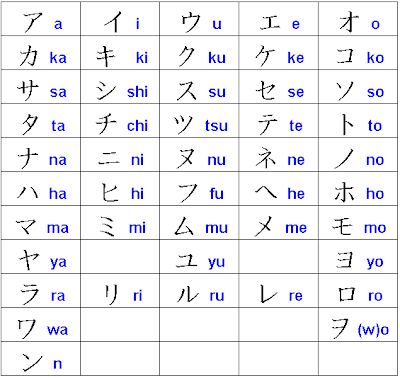When in doubt, point and smile
Before moving here, I knew how to say hello, thank you, goodbye, and dog in Japanese. As you can imagine, these four words will only get you so far. I spent a fair amount of worrying about how I would get my dogs through customs in Tokyo without knowing the language. My plan was to use the international gesture of crying while saying “inu, inu, inu” (Japanese for dog). Fortunately for me and the dogs, everyone I encountered in Tokyo spoke English.
Okinawa also has its fair share of English-speaking nationals. Additionally, the American military presence has accustomed many Okinawans to dealing with English speakers. Many businesses have English signage and a lot of restaurants have English menus. You could definitely live here for years without having to learn Japanese. But what fun would that be?
Fred had learned a good amount of basic Japanese by the time I arrived to the island. He could even (slowly) make sense of some non-English menus and signs. The Japanese use three different alphabets: hiragana, katakana and kanji. While it may sound confusing, the first two are actually pretty simple. Hiragana consists of 46 characters with a few possible variations for certain characters. This alphabet is reserved for original Japanese language words. An example would be “konnichiwa” which means good afternoon.
Hiragana
Katakana also consists of 46 characters with additional variations. Katakana is reserved for adapted or foreign words used in the Japanese language. For example, “kohii” would be written in katakana because it is taken from the American word for coffee. Additionally, foreign names are written in katakana. In Japan, I am コードニー (pronounced Kotoni) and Fred is フレード (pronounced Furedo).
Katakana
While I’ve learned both hiragana and katakana, Kanji is a whole other beast I have yet to figure out. These are Chinese characters used in the Japanese language. I am just now beginning to learn some, but I feel this will take longer than the two days it took me to learn hiragana and katakana from my iphone app. School children study these for years.
My favorite thing about Japanese is that I already knew a decent amount and didn’t even realize it! If you know English, you know all the adapted English words they use (thank WWII for this). A few of my favorites are:
furaido chikin – fried chicken
aisu kurimu – ice cream
hambaga - hamburger
hotto doggu – hot dog
biiru – beer
If you can read katakana, it’s a fun little game trying to figure out what English word they are trying to mimic. You often have to say them out loud repeatedly until you sound like you are saying an English word with a Japanese accent. My favorite discovery occured while Fred and I were at the convenience store trying to pick out onigiri (seaweed-wrapped rice cakes) to eat. We were trying to figure out which ones had meat in them and which ones didn’t. One was labeled as having “shichikin” inside. After much pondering, we decided it sounded most like “sea chicken,” which led us to chicken of the sea brand tuna fish. Sure enough, the Japanese refer to canned tuna as sea chicken. I love this language.
Sea Chicken
I now know much more than hello, goodbye, thank you and dog. I’m taking Japanese classes and watching occasional Japanese television to practice. The classes so far have taught me phrases, basic sentence structure and lots of great vocabulary. I’m also starting to learn verb conjugation. I think it is fair to say “watashi wa sukoshi nihongo o hanashimasu” (I speak a little Japanese).





Hahaha! Sea Chicken - awesome! What other words do they have besides the ones you listed?
ReplyDeleteIt's like a game of Mad Gab! http://www.playmadgabonline.com/puzzles/view/222
Love it!
Molena, I discover new English-inspired words everyday! It’s so much fun. A lot of foods fall into this category. Can you guess what sandoicchi, banira, and miruku are? Hint, say them quickly with a Japanese accent and they will begin to sound like English. And don’t forget, Japanese often turn “R” into “L” when they speak. :)
ReplyDeletehaha...I know its sandwich, vanilla and milk...this guessing game is fun
ReplyDeleteguess what is this then "terehon kado"
happy guessing
Nani Nano; does Terehon Kado mean Telephone Call?
ReplyDeleteLet me know, my email is ZeroRocks04@yahoo.com thanks
ReplyDeleteGreat job, I was doing a google search and your site came up for homes for sale in Altamonte Springs, FL but anyway, I have enjoyed reading it, keep it up! download japanese hand writing fonts
ReplyDelete